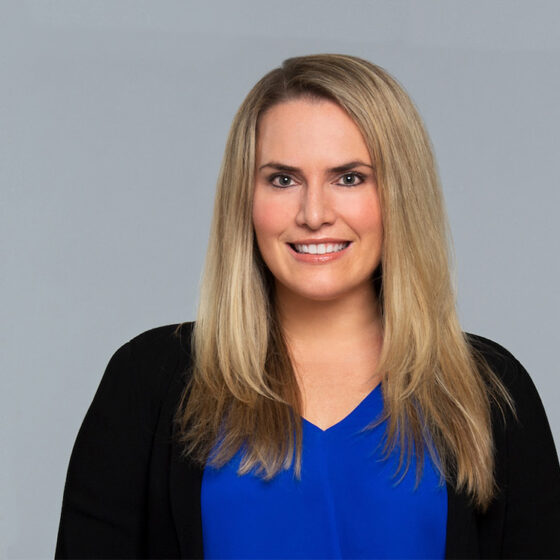Insights,
Insights,
On July 13, 2023, the Centers for Medicare and Medicaid Services (CMS) issued the 2024 Medicare Hospital Outpatient Prospective Payment System (OPPS) proposed rule (link) with an accompanying fact sheet (link).
Comments are due on September 11, 2023. The final rule will be issued in early November.
Proposed Rule highlights include:
Below, ADVI provides a summary of notable proposals. Please contact your ADVI Account Manager for additional details.
40B
CY 2024 Payment Policy
For CY 2024, CMS proposes to continue to pay the statutory default rate of ASP+6% for 340B acquired drugs and biologicals (consistent with CMS policy for drugs and biologicals not acquired through the 340B program).
CMS refers stakeholders to the recent proposed rule “Hospital Outpatient Prospective Payment System Remedy for the 340B-Acquired Drug Payment Policy for CY 2018-2022” (link). While the proposed rule does not include changes to the CY 2024 OPPS drug payment policy or conversion factor, CMS notes that it does propose changes to the calculation of the conversion factor beginning in CY 2025. See our ADVI Instant on the proposed remedy rule for more information.
Use of “JG” and “TB” Modifiers
In the CY 2023 OPPS final rule, CMS maintained the requirement that 340B hospitals report the “JG” or “TB” modifiers to identify drugs acquired through the 340B Program for informational purposes. In the December 2022 “Part B Inflation Rebate Guidance: Use of 340B Modifiers” guidance, CMS upheld this policy, noting that it provided an existing mechanism to identify units of drugs and biologicals acquired through 340B so they can be subtracted from Part B inflationary rebates under the IRA.
However, in this proposed rule, CMS proposes to instead use a single modifier, with the aim of simplifying the process for providers. Effective January 1, 2025, CMS proposes that all 340B covered entity hospitals paid under OPPS report the “TB” modifier, even if the hospital previously reported the “JG” modifier. The “JG” modifier would remain in use through December 31, 2024, but hospitals may choose to transition to the “TB” modifier anytime in 2024. CMS notes that they plan to update the “Part B Inflation Rebate Guidance: Use of 340B Modifiers” guidance with this change and to align modifier requirements for 340B entity providers and suppliers not paid under the OPPS.
Hospital Transparency
CMS proposes to update the requirements for hospitals to make public their standard charges and CMS enforcement of hospital price transparency regulations. Enforcement process changes include requiring corrective action plan completion deadlines, imposing civil monetary penalties for failure to submit a requested corrective action plan on time, and eliminating warning notices for hospitals that have not made any attempt to satisfy the requirements, instead, immediately requesting that the hospital submit a corrective action plan. CMS is proposing to give hospitals an enforcement grace period for adoption of the CMS template and encoding additional data elements until March 1, 2024.
Device Pass-Through Status
CMS received six device pass-through payment applications by March 1, 2023 which was the deadline to be included as part of this proposed rule. CMS requests comments on whether these devices meet the eligibility criteria
Drug Packaging Threshold
CMS is proposing to raise the threshold to $140 per day for CY 2024. This is a $5 increase from the CY 2023 threshold of $135 per day. Items with a per day cost greater than $140 are identified as separately payable unless they are policy-packaged.
Biosimilars
Proposed Drugs and Biologicals with Expiring Pass-Through Payment Status in 2024
There are 43 drugs and biologicals for which pass-through payment status expires by
December 31, 2023 (listed in Table 35 of the Proposed Rule).
For CY 2024, CMS proposes to end pass-through payment status for 25 drugs and biologicals which were initially approved for pass-through payment status between April 1, 2021-January 1, 2022 (listed in Table 36 of the Proposed Rule). The associated APCs and PCPCS codes will end by December 31, 2024. CMS proposes paying for pass-through drugs and biologicals for CY 2024 and beyond using the ASP methodology (a payment rate based on ASP, WAC, or AWP as applicable).
Enhancing Oncology Model (EOM)
CMS is soliciting comments on proposed APC and status indicator assignments for new HCPCS codes established and made effective on April 1, 2023. This includes “M0010: Enhancing oncology model (EOM) monthly enhanced oncology services (MEOS) payment for EOM enhanced services”. The full list of proposed status indicators and definitions can be found in Addendum D1 of the proposed rule.
Changes to the List of ASC Covered Surgical Procedures
CMS is proposing to add 24 dental surgical procedures to the ASC covered procedures list (CPL) in CY 2024. CMS notes that, in response to requests received in the CY 2023 OPPS final rule, they conducted a review of dental procedures that are currently paid under OPPS and not include in the ASC CPL.
CMS does not propose to remove any procedures from the ASC CPL in CY 2024.
Changes to the Inpatient Only (IPO) List
CMS proposes to add 9 new services to the IPO list in CY 2024 and to reassign 1 CPT code (0646T) from status indicator “E1” (not payable by Medicare) to “C” (Inpatient Only). CMS does not propose to remove any services from the IPO list in CY 2024.
CMS believes the following codes meet current criteria to be added to the IPO list:
| CPT | Descriptor |
| X114T | Revision (e.g., augmentation, division of tether), replacement, or removal of thoracolumbar or lumbar vertebral body tethering, including thoracoscopy, when performed |
| 2X002 | Anterior thoracic vertebral body tethering, including thoracoscopy, when performed; up to 7 vertebral segments |
| 2X003 | Anterior thoracic vertebral body tethering, including thoracoscopy, when performed; 8 or more vertebral segments |
| 2X004 | Revision (e.g., augmentation, division of tether), replacement, or removal of thoracic vertebral body tethering, including thoracoscopy, when performed |
| 619X1 | Insertion of skull-mounted cranial neurostimulator pulse generator or receiver, including craniectomy or craniotomy, when performed, with direct or inductive coupling, with connection to depth and/or cortical strip electrode array(s) |
| 7X000 | Ultrasound, intraoperative thoracic aorta (e.g., epiaortic), diagnostic |
| 7X001 | Intraoperative epicardial cardiac (e.g., echocardiography) ultrasound for congenital heart disease, diagnostic; including placement and manipulation of transducer, image acquisition, interpretation and report |
| 7X002 | placement, manipulation of transducer, and image acquisition only |
| 7X003 | interpretation and report only |
| 0646T | Transcatheter tricuspid valve implantation (ttvi)/replacement with prosthetic valve, percutaneous approach, including right heart catheterization, temporary pacemaker insertion, and selective right ventricular or right atrial angiography, when performed |
Additionally, CMS is soliciting comments on whether the following 4 services are appropriate to be removed from the IPO list:
| CPT | Descriptor |
| 43775 | Laparoscopy, surgical, gastric restrictive procedure; longitudinal gastrectomy (i.e., sleeve gastrectomy) |
| 43644 | Laparoscopy, surgical, gastric restrictive procedure; with gastric bypass and roux-en-y gastroenterostomy (roux limb 150 cm or less) |
| 43645 | Laparoscopy, surgical, gastric restrictive procedure; with gastric bypass and small intestine reconstruction to limit absorption |
| 44204 | Laparoscopy, surgical; colectomy, partial, with anastomosis |
Partial Hospitalization Program and Intensive Outpatient Services
For CY 2024, CMS proposes to calculate hospital-based Partial Hospitalization Program (PHP) payment rates by 3-services provided per day and 4-or-more-services provided per day based on cost per day using the OPPS data set.
CMS seeks to codify existing requirements for PHP patients are prescribed by a physician to receive at least 20 hours / week of PHP services, and is determined at the most on a monthly basis. It is believed by CMS that this will not increase any practical burden to providers.
CMS affirms that behavioral health and substance use disorders are to be covered by Medicare under PHP as long as the program guidelines and regulations are followed.
CMS intends to establish intensive outpatient services (IOP) similarly to the PHP except with a threshold of 9 hours / week of services. OPPS seeks to establish patient eligibility for IOP as patients who have a mental health diagnosis, are likely to benefit from coordinated services, do not require 24-hour care, are not a danger to themselves or others, have a support system while not in treatment, and have the cognitive and emotional ability to participate in treatment.
The following services are to be covered under the IOP: Individual and group therapy with physicians or psychologists; occupational therapy; services of social workers, psychiatric nurses, and other trained psychiatric staff; drugs and biologicals prescribed for therapeutic purposes; individualized activity therapy that are not recreational; family counseling; patient training and education; and diagnostic services. The following services are not paid under IOP: physician services, physician assistant services, nurse practitioner and clinical nurse specialist services, qualified psychologist services, and skilled nursing facility-furnished services.
CMS proposes that IOP regulations be covered and centrally incorporated into the remit for qualifying Community Mental Health Centers (under Medicare Part B).
Payment for Non-Opioid Products Under Section 6082 of the SUPPORT Act
The HHS Secretary continues to evaluate payment terms of opioid and non-opioid treatments to remove any instances of potential financial incentivization toward opioid use. For CY 2024, CMS proposes to apply the drug package threshold payment of $140 for treatments that are FDA-approved for pain management (unpackaged as surgical supplies with no transitional pass-through payment status), coverage for which was established by CY 2022 OPPS/ ASC final rule.
Specifically, HCPCS codes C9290 (Exparel), J1096 (Dextenza), J1097 (Omidria), and C9089 (Xaracoll) meet the criteria for the above coverage and should receive payment in the ASC setting. HCPCS code C9144 (Posimir) is payable through OPPS transitional pass-through status and will not be separately payable.
CMS is actively seeking comment for the CY 2025 OPPS rulemaking on the inclusion of and implementation for The Consolidated Appropriations Act, specifically the “Access to Non-Opioid Treatments for Pain Relief” section.
Health Equity Consideration in OPPS Impacts
With this proposed rule, CMS is seeking feedback from “interested parties” about the impact of OPPS and ASC changes to historically underserved populations (e.g., racially and socioeconomically diverse, non-English speaking, people with disabilities, rural communities, LGBTQ+, etc.). Current OPPS impact data captured includes provider type, rural versus urban, geographic region, teaching status, and ownership type – CMS is seeking health equity questions that can be answered by those attributes, as well as soliciting ideas for further data points and categories to be collected. Comments about building and expanding a health equity framework to enhance future policies are also requested.
ADVI will continue monitoring developments and next steps. This is a delayed release. ADVI Instant content is distributed in real time for retainer clients. Get in touch to learn more about how we can support your commercialization, market access, and policy needs.


Head of Policy, Research, and Analysis